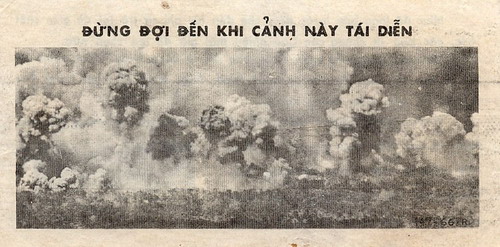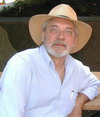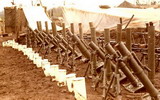
| Paradise |
|
It’s the first day, the time before the long boisterous chow lines and haughty
cafeteria servers sporting white plastic aprons, red spidery hair nets or white
paper caps, and thin transparent gloves as they mechanically slop portions of
muck into our ripe disposable plates. At every meal in the barn-sized hall there
is a mystery man who sits alone. His jaw is missing. He has no eyes.
It’s the time before I do not attend the crowded AA meetings because I do not drink. “Then why are you here?” I’m always asked. “Because it’s part of the program,” I learn to say. It’s the time before six professional staff corner me in a cramped dim lit room. ‘Teaming,’ it’s called. “You’re a drug addict. You did  It’s the time before the morning insult of ‘medication time,’ where grown men are daily infantilized by glaring nurses with paper cups and paper charts and pill-filled plastic bottles and not much else on offer.  It’s the time before I learn to slip bitter tablets beneath my tongue, sip the water, sip it, swallow convincingly hard, walk convincingly away, spit out the multi-colored goo in a chipped and stench filled toilet. It’s the time before begging the stressed out, overworked, underpaid head  It’s the time before random piss tests, when three times per week we are herded like goats, penned at the urinals, treated like cattle, branded by labels that hang like bells above our penitent heads.  It’s the time before we twenty patients of various sizes, shapes, features, file into great spartan rooms, unstack metal folding chairs, drag them across the worn out floors, and erect a wide irregular perimeter. Some men tap their toes, some men cross their legs, and some slump back, while listening to the wise words of a white haired stuttering man, a former airline pilot who once jetted troops to the faraway shore. Men will shout, scream or whisper their blistering remarks and wait for his stuttered reply. It’s the first day, and thus the time before we are made to wait and wait by smug low level clerks trapped by the walls of their office cubicles. Yes, it’s day one inside the 1950s era red brick, beige interior Veterans Administration PTSD ward. There is a spacious day room which contains two ping-pong tables, a billiards table, a wall mounted TV, a sagging red sofa and many pastel wood chairs. A gray metal coat rack with broken steel hangers hugs the near wall. Next to it, a fake pine wood bookcase sags with paperback books and many informational brochures. A gray metal waste basket is parked in each corner of the room. There is a hallway populated by coffin like wall eyed doors. Past the hall way, begins a series of above ground tunnels which connect to the hospital complex, which is vast and impersonal, as such places are. But here on Unit 12 twenty gray haired middle aged men will each day, one on one, or in self-selected groups, engage with clinical staff eager to battle PTSD. It’s 8a.m., and long-haired, sleepy-eyed, rail thin, cane-toting, mustachioed Jay R and me stand before a young doe-eyed admissions clerk waiting for her to speak. She strokes her hair, clears her throat. We’ll continue our small talk later.  “EKG,” says Charlene Scalimoni. The sweet syllables of her name are lettered on a flat plastic bar held in place by a polished metal bracket which sits atop her wide metal desk. Charlene is pretty, petite, twenty-something. Her radiant blonde hair falls to her perfumed shoulders; she is rather buxom in her red silk skirt and matching blouse; she has perfectly symmetrical, nine-inch nails. She wears sparkly red lip gloss, iridescent rouge and blush patina her angular face. Serpentine lines of jet black mascara provide an intimate touché. Charlene has apparently ransacked a no name discount store for bulk quantities of designer perfume, knock-off salon shampoo, discontinued airline stewardess make-up kits, counterfeit name brand apparel, matching accessories. As we stand before her in our thread bare jeans and rumpled shirts, in the wrinkling skin that is the uniform of our years, even in my diminished mental state I suspect that young, alluring, entry level Charlene is thoroughly bored. Yet being a newly admitted patient, a disoriented guest, a psychiatric pilgrim in search of therapeutic salvation, I dare not speak. Charlene hands each of us a legal size, paper-button, red twine-sealed manila envelope which contains our VA records. In a singsong voice she tells us where to go, how to get there, who to ask for. Step by step by step. It would seem she has done this many times. “Thank you, Charlene,” we pipe up like obedient children. Then we are off, trapped for our own good in the loveless twisting corridors of this spartan sanctuary. Jay R continues telling his story. He is fifty-six years old come this Friday. Can’t believe he’s made it this far. Special Forces, he says in a gravely Southern voice. Ashau Valley and other bad places in ‘66. His limp is an outcome of numerous surgeries that have not quite worked. The wound, he says, with a hint of pride, was not pleasant. We walk and talk, taking our time in the tangle of beige-soaked corridors. Every fifty meters there is  After a time a tall young man wearing a blue lab coat enters the room. “Who would like to go first?” he asks in a pleasant voice. Jay R says, “Whatever you like, son.” The pleasant young man replies, “Follow me.”  As Jay R stands up I raise my hand to an invisible helmet. He returns an equally crisp salute. “At ease,” he says. We have grown close in this short time. In these strange circumstances. “At ease.” Then Jay R walks out, pulls the door shut behind him. I’ve forgotten my reading glasses. Just as well. I know the brochures on the table by heart. Not interested in Know Your GI Housing Benefits, Serviceman’s Group Life Insurance, Get Tested for Hepatitis C. Not interested. No thanks. After a time my eyelids flutter and fold; the warm sun kisses the base of my neck. I’m falling... falling. But it’s pleasant. Like the limbo time between waking and sleep. Faraway a man is singing a happy/sad tune. Inside me a calm voice says, “You did it. You went back. You went back...” I’m on the old French train from Hanoi to Hue. Each boxy white carriage is built like a battleship; each thick steel car is welded tight by ten thousand rivets made of blood and bones. It’s hot and cramped in the low slung four-bunk sleeper car. I take the  Thud, thud, thud. Two thin men with high cheek bones and bushy black hair march into our half full metal jacket. They are North Vietnamese soldiers. They wear tan dress uniforms with blood red epaulettes. They wear jaunty black visored caps. One takes the top bunk, one takes the bottom. As they settle in there’s an awkward silence. Bile and fear fill my mouth; it tastes like bullets. I reach for my Swiss Army knife with its finger sized blades and bantam tools. Seth thumbs his dog-eared phrase book for greetings and salutations. The three of them begin talking but I’m lost in a landscape of jungle and craters and wide open fields and there’s no turning back. If the ferocious NVA make one false move I will stab the blade deep and rip out their hearts, I will stab deeper and pull out their lungs. Me and my gallant Swiss Army knife. Go ahead, talk. Go ahead, smile. I know your tricks you sons of bitches. I know your ways. I know the idiom and language and back beat of war. Can’t you see and smell and feel the red rage that fills my head, the thunderous fear that fills my heart? What is wrong with you fucking people? C'mon: Make your move or I’ll make mine. I can’t stand the tension. Kill or be killed. That’s the way it works. Kill or be killed. In the early morning, after twenty sleepless hours we pull into Hue. We’ve played chess with the enemy. They’ve showed us wallet sized family photos. We’ve shared bread; we’ve shared crackers and soda. Spoken in playful phrases and made artful pantomime. They’re human beings. Just like us. Yet every inch of the sleeper car is covered in blood. I’m filled with fury, blinded by it. I must plunge the impotent knife, fire my weapon, run for cover, and no one, no one, sees it. What is wrong with these people? What’s wrong with them? A latch turns. I startle awake. There is no upward free fall from this sleepy time. There is no graceful rising, no soft welcoming curve, no progressive gradient state of wakefulness. I’m simply thrust back into the arms of this waiting world where I must daily shake off demons. On the day before the very first day, a balding, heavy set, sleepy eyed doctor wearing an expensive tweed sports coat, tailored white shirt, gray flannel slacks, and tasseled loafers spoke to us about startle reflex, sudden anger, thoughts of hurting people, thoughts of hurting oneself, nightmares, flashbacks, drinking, depression, crying spells, feelings of loss, feelings of grief, or feeling no feelings: cold, like ice. He said that’s Post Traumatic Stress Disorder. A documented set of emotional conflicts treated with counseling and medication. That’s good. That’s real good, I thought. But what’s that got to do with my heart? “You been sleeping?” asks Jay R. I turn my head to the left, to the right, with the knuckles of my clenched fists rub my eyes. “You OK, partner?” he says. I mimic a soldiers casual smile. “Yeah,” I say. “How’d it go?” Jay R, who is given to understatement, settles into the squishing seat. Squiiissshhhh. He says it’s no big deal. He says he’s seen better, he’s seen worse. He says it’s over and done with before you know it. “Your turn,” he says. The blue jacketed young man nods in pleasant agreement. We exit the waiting room, make a sharp right, and enter a passage which leads to a door marked: Sally Ingram, Tech III. The young man enters first, gallantly points to a sturdy wood seat. “She’ll be right with you,” he says. Then he is gone. The soft lit room is purely functional. There is a leather padded exam table covered with a long sheet of crinkly white paper. Next to it, on a moveable metal stand, sits a white plastic EKG machine, with blinking lights, dial meter, Start button, Off switch. There is a stainless steel sink, a locked glass medical cabinet which contains gauze, tape, plastic squeeze bottles. Atop the machine, an orange mass of squid like tentacles, each tipped by a flat rubber disk like those on toy darts. Someone deliberately coughs, then enters the room. “Good morning,” says Ms. Ingram. “Good morning,” I say. Sally Ingram is a well preserved middle-aged woman of medium height and medium build. Her straight brown hair frames a pleasant ordinary face. As she approaches the exam table a hint of perfume trails her every step. She is wearing a black pant suit topped by a blue cardigan wool sweater which accentuates her not immodest bosom. She appears comfortable. She appears confident. She has measured many hearts. “Please take your shirt, shoes and socks off and lie back,” she says, patting the center of the table.  “Are you cold?” asks Ms. Ingram in a carefree voice. “Yes,” I say. But it’s more than cold. And it’s more than sex. “We’ll be done soon,” she says, reaching over me for the orange tentacles, gathering them up one by one. There is a rhythmic pattern in the way she applies the clear sticky goo to the dart-tips, presses the icy coins to my legs, the inner parts of my arms, across my chest. There is a playful manner in her touch which says, ‘Yes, this is provocative, sensual, erotic, how could it not be? But this is my job, I do it well, so please don’t get out of line. Please don’t. We’re adults. Aren’t we? We’ll behave. I’ll do my job. You do yours.’ As she bobs and weaves, adjusting the suction cups, pressing here, pushing there, making soft circles with her finger tips to spread the gel, I don’t fight the fantasies but I don’t pursue them. Yes, I want to undress her. Pull her close, inhale her scent, feel the press of our moistening bodies. Yes, I want to reach one hundred orgasms before entering her with my dreams. Love. It will be lovely. Not like the doctor said. Afterwards I will curl into her, mimic the strange awful sounds men make in war. I will mimic the lost or stoic or helpless look of the wounded: their brightened eyes or damning glances. I will show her outstretched hands, murmurless lips, imitate a man's last breath, a boy's final face. Tell her of the enemy who hunts us as we hunt them. Tell her we make believe they are not human beings. I will sing to her Arc Light’s lofty bomb lullaby, make the buzz noise of large falling bombs, demonstrate the ground beneath us as it shakes, the next day smoke still rising from thirty yard craters. I will tell her of meadows of flesh and blossoming wounds that rise up from fields of friendly fire. “Stay still,” say Ms. Ingram. “That’s better.” I am laid out like a beached whale on a remote sandy shore. The flexible hollow tubes are fastened to my flesh like blood fat leeches; they wrap themselves around the contours of my body like serpentine fingers. They are blown away legs, they are amputated arms and feet, I’m in encased in them, trapped, a willing prisoner of memory and medicine. I have known devils with AK-47s and angels with M-16s. I am the perfect patient. The invisible battle pins me down. Ms. Ingram presses a button on the white machine. I imagine a mechanical stylus tracing jittery lines. I hear clicks, pops, chugging. Moments later a wide paper ribbon spools into her waiting hands. “All done, “ she says, folding the long page into evenly spaced accordion pleats. She unseals the VA envelope, inserts the machines calligraphy, reseals it. “You can get dressed. Nice meeting you.”  He expertly thumbs past government issued intake forms, hand written mental status notes, emergency contact information, informed consent, medical history, etc, etc. Like a repentant sinner opening the bible, he unfolds the panoramic mystery. A thin black line traces gentle slopes across the musical page. Jay R says, “Still warm. Still ticking. What you got, son? What you got?” I open my envelope. Carefully fan out the paper. A chorus of spiky peaks and troughs skitter past. Jay R slaps his good leg. “She was good looking,” he says, “Wasn’t she?” A sly grin creases his battle worn face. |
| (Click Photos For Description and to Enlarge) |
|
Marc Levy
Then and
Now
D 1/7 Cav '69-'70 |
| Read More of Marc's Stories |
|
|